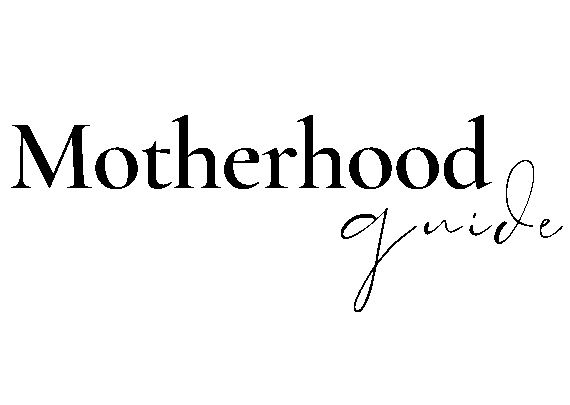In this delicate, often unpredictable world of parenthood, only a few moments can be as transformative, as the act of us, parents apologizing to our children. It’s a gesture that shows self-awareness, humility, and an understanding that our children, like us, are growing, evolving, and learning with every passing day and every mistake that happens.
By apologizing to your children and inviting forgiveness, you equip your children with the emotional tools needed for their future relationships. We show our children that while hurtful things may happen, there are ways to fix it and they can always choose to release those feelings and not let them control their emotions.
Many parents hesitate to apologize, believing that the apology would undermine our authority or diminish the value of our guidance. But what if the opposite is true? What if I’d say that an apology is not only a sign of strength, but a powerful parenting tool for deeper bond, understanding, and healthier parent-child relationship?
Apologizing to Your Children: Teaching Them That Mistakes Are Part of Being Human
In one moment, you may feel you have the formula for raising a healthy, happy, well-adjusted child. Then, just as quickly, you discover that your tried-and-true methods no longer work with your growing teen or adult children. It’s easy to feel overwhelmed, frustrated, and make mistakes that might hurt them or your relationship. No mother is immune to being wrong, and no parent has the perfect recipe for raising their children. Being always right teaches nothing, while admitting when we’re wrong and apologizing is very powerful.
When we apologize and allow space for our children to forgive us, we also give a chance to release negative emotions. This release is not about forgetting or excusing the behavior, but about choosing to move forward with a sense of emotional clarity and intention of healing. When our children forgive us, they are not only letting go of the pain caused by that specific incident but also begin to understand that holding onto anger or resentment only prolongs suffering, while forgiveness gives emotional freedom.
This is particularly important for teens, who are at a developmental stage where they are learning to navigate complex emotions and relationships. If a child, or more specifically, a teenager has never had the chance to forgive their parent, that unresolved emotional weight can manifest in damaging ways: through increased anxiety, withdrawal, self-harm, conflicts or harmful perfectionism. It may even influence the way they approach forgiveness (towards others and themselves) in future relationships, making it harder for them to resolve conflicts with peers, romantic partners, themselves or even their own children one day.
The Science Behind Apologizing to Your Children
According to Jungian psychology, self-awareness and personal growth are deeply interconnected with the capacity for vulnerability. A parent who is able to apologise to their child demonstrates a willingness to confront their own mistakes encourages them to embrace their own imperfections and learn from their mistakes. In this way, the apology becomes a tool for emotional education, teaching both parent and child that growth comes from acknowledging, not denying, our faults.
Research on forgiveness reveals that it is a key factor in breaking the cycle of generational conflict. When parents apologize and give the space for their children to forgive, they interrupt unhealthy emotional patterns that could otherwise be passed down through the generations. Children who learn to forgive their parents are more likely to apply this same practice in their relationships with others, making healthier, more compassionate connections.
It allows our children to accept their own imperfections, understand the complexities of relationships, and build resilience in the face of life’s non stop challenges. When we show that mistakes happen, and that relationships, that once have been hurt, can be repaired through mutual understanding and forgiveness, we arm our children with the tools to approach their own future relationships with empathy, openness, and a willingness to forgive.
When children witness their parents owning up to their mistakes, they learn that it’s okay to be imperfect and that growth comes from acknowledging and learning from errors. They build the idea that emotional honesty and vulnerability are not signs of weakness but of strength.
How to Apologize to Your Child: The Practical Steps
While the value of a parental apology is clear, the act itself can often feel daunting. How do you find the right time? What words should you use? And how do you ensure that your apology is received in the spirit it was intended—without guilt or defensiveness clouding the message?
- Choose the Right Time and Place
The timing of your apology is important. Don’t apologize in the middle of an argument or when emotions are still running high. Choose a calm, neutral moment where both of you are able to engage in a thoughtful conversation without distractions. This will allow for the apology to be received with the sincerity it deserves. - Be Honest and Specific
The most effective apologies are those that are clear, specific, and genuine. Rather than offering a vague “I’m sorry for everything,” take the time to reflect on what specifically you could have done differently. Acknowledge the impact of your actions on your child, and express a sincere desire to do better in the future. For example, you might say, “I realise that when I raised my voice the other day, I made you feel disrespected. That wasn’t my intention, and I apologise for doing that.” - Avoid Defensive Language
An apology should not be accompanied by justifications or explanations. Resist the urge to say things like, “I’m sorry, but…” or “I was just trying to help…” These phrases cancel the apology and may make your child feel as though you’re minimising their feelings. Instead, focus on expressing your remorse without shifting blame. - Don’t Let Guilt Control You
It’s natural to feel guilty when you recognise that you’ve made a mistake, but allow yourself to release that guilt. Guilt can be paralysing and counterproductive. Instead, shift your focus to the action of repairing the relationship. Remember that your child will benefit far more from your apology and efforts to improve than from your continued guilt. - Model Forgiveness
When you apologise to your child, you are not only offering them an opportunity to heal, but you are also teaching them an invaluable lesson about forgiveness. Children who witness their parents own their mistakes and fixing them are more likely to internalise the importance of humility and empathy in their own lives. They learn that mistakes are not something to be ashamed of, but rather an opportunity for growth and understanding. - Take Time to Reflect
There will be times when you realise, in the moment, that you have acted out of line but cannot yet bring yourself to apologise. If you are unable to express an apology in that moment, give yourself the space to reflect. Over time, understanding your emotions and actions may allow you to articulate the apology more clearly. Take the time you need, but never forget that the apology, when it comes, is a start to the healing process.
Give Them The Power Of Forgiveness
By apologizing to your children, you’re not only creating the space for emotional repair in your relationship, but you are also giving them a gift: the power of forgiveness. The benefits of forgiveness extend far beyond the parent-child relationship itself. When children experience that emotional release that comes with forgiving their parents, they are also learning how to forgive themselves and others in their lives. This lesson extends to friends, classmates, teachers, romantic partners, and even colleagues. A child who’s parents apologies to him for something they did wrong is more likely to approach conflicts with a mindset of resolution, rather than holding onto grudges or building emotional walls.
Forgiveness also positively influences the child’s sense of self. By letting go of negative emotions, children are better able to develop a healthy self-concept, one that is not shaped by unresolved emotional burden. They are more likely to have self-compassion, recognising that mistakes are a part of life and are not reflective of their worth. In this way, apologising to your children is a powerful lesson in emotional maturity, self-awareness, and emotional regulation. For us, parents, the act of apologizing helps deepen our bond with our child. It demonstrates vulnerability and a willingness to meet our child on equal emotional grounds. When both parent and child embrace forgiveness, the relationship becomes stronger and more resilient.
The power of apologizing to your child extends far beyond the immediate healing of a specific moment in time. It is a gold worth parenting tool that teaches children the great skill of forgiveness. By offering an apology, parents show vulnerability, humbleness, and the importance of emotional repair. We give our children the gift of emotional freedom, teaching them that forgiveness is not a sign of weakness, but a path toward strength, peace, and emotional resilience.












